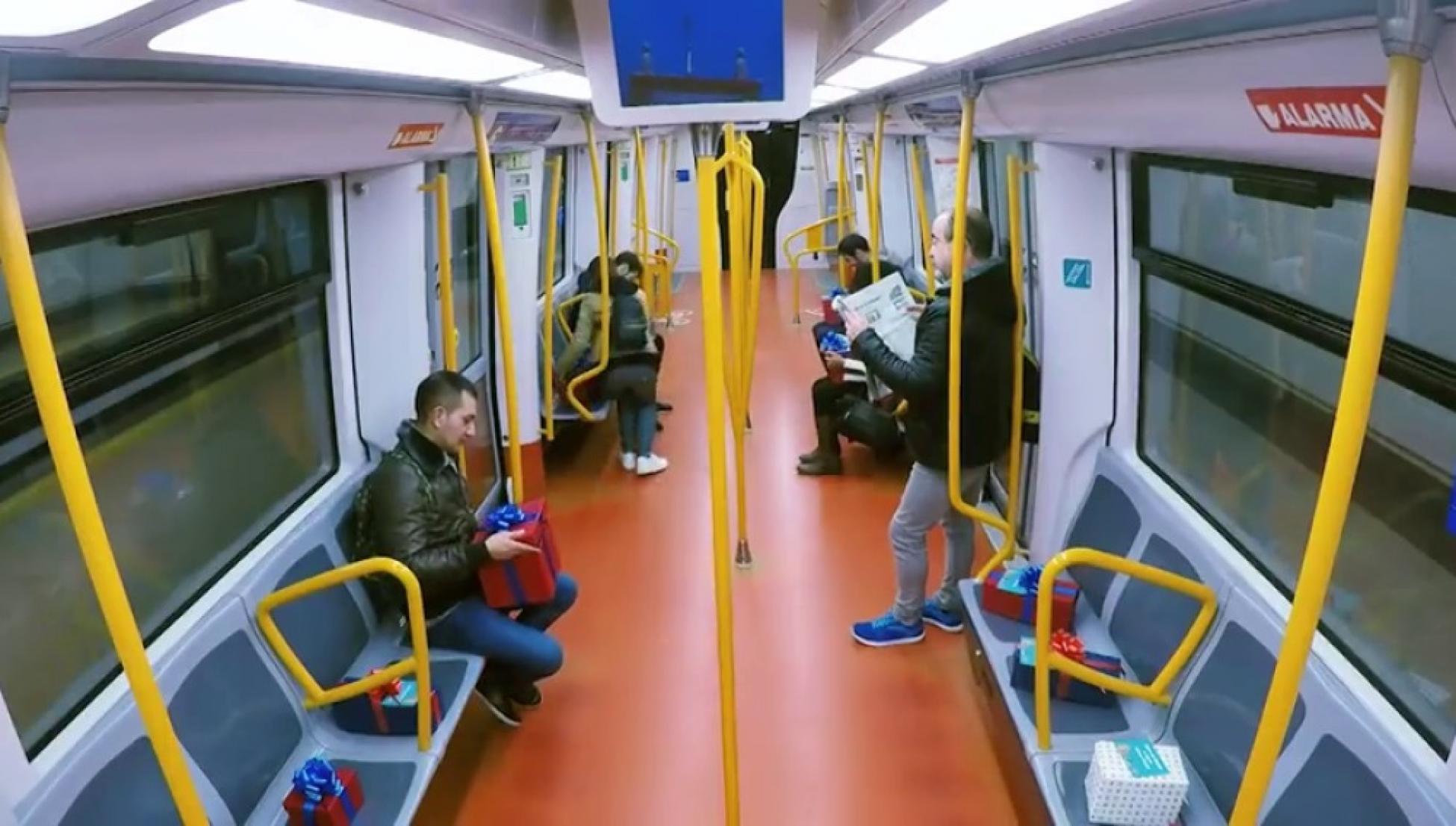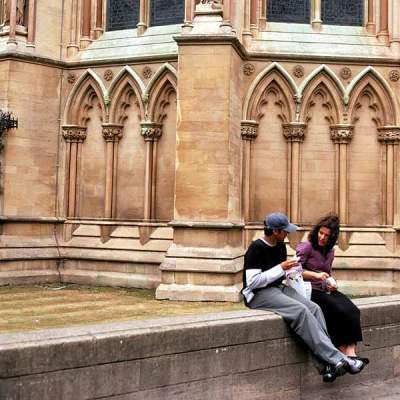Dealing with public transportation is part of daily life in any city. We all must find ways to “cope” with sharing very close quarters with the different people around us. While back at home, complaining about public transportation seems justified by the fact that much of my hard-earned money is being pumped straight into the engine. In Madrid, however, where a €20 monthly pass buys me access to everything I need, I make the best of any given situation.
On severely crowded metros, my head almost nestled on the man next to me, I laugh. Sitting next to a reggaetón fanatic without headphones on the train, I try to get my jam on. I muster a smile for the senior, whose social hours are the moments when someone is obliged to reply to their ramblings about how much they don’t like the bus. It is the same smile that I give to other stiff-lipped passengers when there is yet another group of guys playing ABBA covers with Peruvian flutes.
However, my smile can easily turn sombre when I hear the cries of “perdona las molestias” (“sorry for the inconvenience") entering a car. Their strained, scraggly voices ring from car to car with stories of unemployment and disease, as they hope for something to fill their pockets. I reassure myself aware from my heavy heart that anyone who needs a cell phone, or at least a pair of ears to listen, will find what they need from me.
However, feeling “one with humanity” is not what one particularly needs nor wants while jolting around under earth’s surface on the metro or while trying to recollect their sanity on the train home from work. This can be seen in what we call here the “Spanish stare”—a look that is given to anything strange, unusual, or bothersome. Passing judgement—whether verbal or not—is norm here in Madrid. However, is a quiet ride truly what commuters want?
Do you hear that?
December has just begun, and I’m on a train with a friend from the airport to the centre of Oslo. The fog moves us along a slate landscape, the sky a low-hung ceiling of clouds on the verge of surrendering snow. It seems as if the ghost of Steig Larsson himself must not be but a few rows down, writing his next novel.
Arriving at Central Station, we quickly realize that this public transportation environment is different than the the one we ride everyday in Madrid—no one is even remotely close to bumping into each other with their suitcases, no one is shouting, no one is even talking.
Meeting up with a friend who recently moved from Madrid to Oslo, he smugly asked us to take a listen while on the metro to his apartment.
“Do you hear that?” he asked. “Nothing, you don’t hear anything.”
It was true. Conversations, if conducted at all, were in hushed tones, muffled by heavy scarves. Passengers sat straight up, eyes calm, not darting in the anxious way eyes do when with strangers in close quarters. Babies didn’t cry and horns didn’t honk.
Passengers sat straight up, eyes calm, not darting in the anxious way eyes do when with strangers in close quarters. Babies didn’t cry and horns didn’t honk.
There is one metro line in Oslo that takes passengers up the mountain to Holmenkollbakken, the Olympic ski jump. With the icy fjords slipping into the background, it is a most stunning, enveloping stillness to experience while on public transport. One which would undoubtedly not be the same if on a tram full of talking people.
It was then that I took notice of how public transportation mimics the nature of its city. While the active street life and sunny weather of Madrid carries on right into the microcosm of its transportation, Oslo’s frigid temps and forests makes a cocoon for its passengers to stay warm.
Personal mental space
Though Oslo’s population is half of that of Madrid’s, and Norwegians have the second lowest percentage of public transportation usage in Europe, the silent nature of the buses, metros, and trains, and trams is reflective of Norwegian social norms. It comes to no surprise that northerners tend to spare a larger room for personal space, however I found that Norwegians leave room for personal mental space. To respect that space means not talking to someone unless given a direct sign that it’s something that they wish to engage in. This behavior of not imposing on other's thoughts extends itself into the public sphere in its entirety.
For daily commuters, particularly in Madrid, it is a fight to retain, maintain, or regain a sense of this personal mental space. It is, at the very least, a petri dish of life on the streets outside. The mental health needs of a society are reflected on public transportation. One is forced to come face-to-face with how others treat each other in close confines, up against something oh-so-powerful—our self-interests.
For the poverty-stricken of Madrid, the metro and the train are perhaps the only time the eyes of others are forced to meet theirs. With a harshly unforgiving desert landscape outside, public transport is the only space for some kind of stability.
Though silence may be necessary for a sense of personal mental space—a time to recollect before the next move of the day—for some, it’s a time to be recognized. Take a deep breath, smile, and mind the gap. The ride will be over shortly.
Add this article to your reading list




